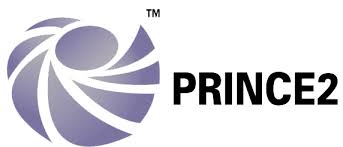
Effective Negotiation Strategy and Loophole Analysis
Course ID: 2508040101171EGI
Course Dates : 04/08/25 Course Duration : 5 Studying Day/s Course Location: London, UK
Language: Bilingual
Course Category: Professional and CPD Training Programs
Course Subcategories: Communication and Interpersonal Skills
Course Certified By: * Projacs Academy
* Professional Training and CPD Programs
Certification Will Be Issued From :
KSA
Course Fees: £4,838.34
Vat Not Included in the price. VAT may vary depending on the country where the course or workshop is held.
Click to Pay
Date has passed please contact us Sales@e-s-hub.com
Course Information
Introduction
Negotiation is an indispensable skill in both professional and personal contexts, serving as the cornerstone of effective communication, conflict resolution, and value creation. In industries ranging from corporate law to international trade, the ability to negotiate strategically can determine the success or failure of critical agreements. Yet, despite its importance, many professionals approach negotiations without a structured framework, often relying on intuition rather than evidence-based strategies. This course addresses this gap by equipping participants with advanced negotiation techniques and the analytical tools necessary to identify and leverage loopholes effectively.
The complexities of modern business environments demand a nuanced understanding of negotiation dynamics. For instance, consider the case of a multinational corporation negotiating a cross-border merger. Misaligned expectations, cultural differences, and regulatory ambiguities can all derail even the most promising deals. By integrating insights from behavioral economics, game theory, and legal frameworks, this course provides participants with the intellectual foundation to navigate such challenges. The Harvard Negotiation Project’s principled negotiation model, for example, underscores the importance of separating people from the problem—a principle that will be explored in depth throughout the program.
One of the key challenges in negotiation lies in balancing assertiveness with collaboration. Many professionals struggle to strike this balance, often defaulting to either overly aggressive tactics or excessive accommodation. Such imbalances not only undermine individual outcomes but also harm long-term relationships. This course emphasizes the importance of integrative bargaining, where parties work together to create win-win solutions. Participants will learn how to apply these principles through real-world scenarios, such as contract renegotiations in supply chain management or salary discussions in human resources.
Loophole analysis represents another critical dimension of effective negotiation. Whether it involves interpreting ambiguous clauses in legal documents or identifying gaps in compliance frameworks, the ability to spot and address loopholes can significantly enhance negotiation outcomes. For example, a procurement manager who identifies a pricing anomaly in a vendor agreement can save their organization substantial costs while maintaining ethical standards. This course delves into the methodologies used to conduct loophole analysis, drawing on examples from industries such as finance, healthcare, and technology.
The benefits of mastering negotiation and loophole analysis extend beyond individual proficiency. Organizations that invest in developing these skills among their workforce report improved decision-making, enhanced stakeholder relationships, and increased profitability. Consider the example of a tech startup that successfully negotiated favorable terms with investors by leveraging strategic insights gained from similar training programs. Such outcomes underscore the transformative potential of this course for both individuals and institutions.
Ultimately, "Effective Negotiation Strategy and Loophole Analysis" is designed to empower participants with the confidence and competence to excel in high-stakes negotiations. By blending theoretical rigor with practical application, the course ensures that learners are not only equipped to handle immediate challenges but also prepared to adapt to evolving industry trends. Whether you are a seasoned negotiator seeking to refine your skills or a newcomer eager to build a strong foundation, this program offers the tools and insights needed to achieve sustainable success.
Objectives
By attending this course, participants will be able to:
Analyze the underlying principles of effective negotiation, including distributive and integrative bargaining strategies, to develop tailored approaches for diverse scenarios.
Evaluate potential loopholes in contracts, agreements, and regulatory frameworks using systematic analytical methods.
Design negotiation plans that incorporate psychological insights, cultural considerations, and ethical guidelines to maximize mutual gains.
Implement advanced communication techniques to manage conflicts, build rapport, and influence stakeholders during negotiations.
Apply lessons learned from case studies and simulations to execute successful negotiations in real-world professional settings.
Who Should Attend?
This course is ideal for:
HR managers and team leaders responsible for resolving workplace disputes and fostering collaborative environments.
Legal professionals and compliance officers tasked with drafting, reviewing, or negotiating contracts and agreements.
Sales and procurement specialists seeking to optimize deal structures and secure favorable terms.
Consultants and entrepreneurs navigating complex partnerships and client engagements.
Training Method
• Pre-assessment
• Live group instruction
• Use of real-world examples, case studies and exercises
• Interactive participation and discussion
• Power point presentation, LCD and flip chart
• Group activities and tests
• Each participant receives a 7” Tablet containing a copy of the presentation, slides and handouts
• Post-assessment
Program Support
This program is supported by:
* Interactive discussions
* Role-play
* Case studies and highlight the techniques available to the participants.
Daily Agenda
The course agenda will be as follows:
• Technical Session 08.30-10.00 am
• Coffee Break 10.00-10.15 am
• Technical Session 10.15-12.15 noon
• Coffee Break 12.15-12.45 pm
• Technical Session 12.45-02.30 pm
• Course Ends 02.30 pm
Course Outlines
Foundations of Negotiation
Overview of negotiation theories and models (e.g., BATNA, ZOPA).
Understanding distributive vs. integrative bargaining.
Key elements of preparation: setting objectives, gathering information, and assessing alternatives.
Role of emotional intelligence in negotiation dynamics.
Day 2:
Strategic Communication Techniques
Active listening and questioning strategies to uncover hidden interests.
Framing proposals to align with counterpart priorities.
Managing difficult conversations and overcoming objections.
Non-verbal cues and their impact on negotiation outcomes.
Day 3:
Loophole Analysis and Risk Mitigation
Identifying common pitfalls in contracts and agreements.
Analyzing regulatory frameworks for potential ambiguities.
Tools and methodologies for conducting loophole analysis.
Ethical considerations in exploiting or addressing loopholes.
Day 4:
Advanced Negotiation Tactics
Multi-party negotiations and coalition-building strategies.
Cross-cultural negotiation practices and adapting to global contexts.
Leveraging power dynamics to achieve desired outcomes.
Crisis negotiation techniques for high-pressure situations.
Day 5:
Practical Applications and Simulations
Real-world case studies of successful negotiations.
Interactive role-playing exercises to practice learned skills.
Feedback sessions and performance evaluations.
Developing a personalized action plan for future negotiations.



















































